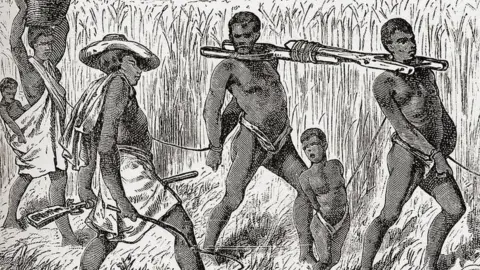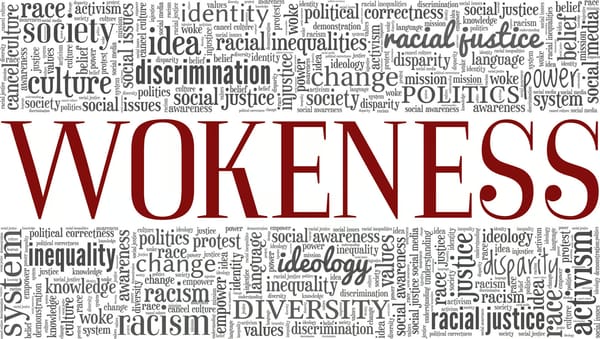Republican Party Origins - Anti Slavery

Did you know the Republican Party was formed to fight the Democrats' plans to expand slavery?
It may surprise some to learn that the roots of the Republican Party are deeply intertwined with the fight against slavery in America. In fact, the GOP’s creation was largely a reaction to the Democrats’ pro-slavery stance during the mid-19th century. But how did this come about, and why was stopping the expansion of slavery such a critical issue for the party’s founders?
The Political Climate of the 1850s
To understand the formation of the Republican Party, we need to set the scene in the 1850s. America was rapidly expanding westward, and the question of whether new territories would permit slavery was at the center of national debate. The Democratic Party, which was dominant at the time, had large southern support, where slavery was essential to the economy. Southern Democrats wanted slavery to expand into new territories, ensuring the institution’s survival.
On the other side, there were abolitionists and other groups who were deeply opposed to slavery, and not just in moral terms. Many feared that the expansion of slavery would give the southern, slave-holding states an unfair advantage in politics and economics.
Enter the Republican Party
The Republican Party was born in the midst of this political turmoil in 1854. Its founding was driven by one key issue: opposition to the expansion of slavery into new territories. Unlike some abolitionists, many early Republicans didn’t necessarily advocate for immediate emancipation everywhere, but they were staunchly opposed to the spread of slavery beyond where it already existed.

The new party attracted a diverse coalition — former Whigs, Free Soilers, and anti-slavery Democrats. All were united by the desire to prevent slavery from gaining a foothold in the western territories. Abraham Lincoln, who would become the first Republican president, embodied this pragmatic yet morally driven stance. While Lincoln didn’t initially call for the abolition of slavery in the South, he was firm in his opposition to its expansion.
The Kansas-Nebraska Act and the Republican Response
The tipping point that led to the Republican Party’s formation was the Kansas-Nebraska Act of 1854. This act effectively overturned the Missouri Compromise, which had prohibited slavery in certain northern territories. By allowing the settlers in Kansas and Nebraska to decide for themselves whether to allow slavery, the act opened the door for its expansion.
Outrage spread across northern states. Anti-slavery advocates saw this as a blatant attempt by pro-slavery forces to extend the reach of an institution many felt should be abolished, not expanded. The Republican Party quickly gained momentum as a political force determined to stop this push.
Republicans vs. Democrats: Opposing Views on Slavery
From the start, the contrast between the two parties was stark. While Democrats, especially southern ones, saw slavery as an economic necessity and a state’s rights issue, Republicans viewed it as morally wrong and economically backward. They believed slavery degraded free labor and undermined the opportunity for economic growth in new states.
At the heart of the Republican Party’s platform was the idea that the United States should be a place where freedom, not slavery, was the norm. This belief helped galvanize a significant portion of the northern population, particularly those who were concerned about the moral implications of slavery and its impact on free labor markets.
The Civil War and the Republican Legacy
By the time Abraham Lincoln was elected in 1860, the nation was on the brink of civil war. His election was seen by many southern states as the final nail in the coffin for their hopes of expanding slavery, leading to their secession and the onset of the Civil War. Though Lincoln initially focused on preserving the Union, the war ultimately became a battle over slavery itself, culminating in the Emancipation Proclamation.

The Republican Party, through Lincoln’s leadership, cemented its role as the party of abolition and national unity. And although the Civil War was a devastating conflict, it ultimately led to the end of slavery in the United States, something that the early Republican founders could only dream of when they first organized.
Does the GOP’s Origin Story Still Matter?
The Republican Party’s origins as an anti-slavery movement have been a point of pride for many in the party, but it also raises interesting questions about the evolution of political parties and their platforms. Today, the Republican Party’s values and priorities look very different from those of its 19th-century founders.
The Democrats, for their part, have also undergone a massive shift in ideology. Once the party of slavery, they are now generally seen as the party that advocates for civil rights and social justice. How did such a dramatic reversal occur? That’s a question worthy of its own deep dive into American political history.
The Legacy of Anti-Slavery Politics
The formation of the Republican Party to counter the expansion of slavery has a lasting legacy. It set the stage for the abolition of slavery, the Reconstruction era, and the long, ongoing battle for civil rights in the United States.

It’s also a reminder that political parties are not static. Over time, they evolve and adapt to new challenges and ideas. The Republican Party of today may not resemble the party of Lincoln, but its origins in the fight against slavery are an essential part of American history.
Final Thoughts: The Importance of Understanding History
Understanding the Republican Party’s formation in response to the expansion of slavery can give us valuable insights into how political movements emerge, evolve, and shift over time. It also highlights the importance of history in shaping our present political landscape. As we consider the current debates about racial justice, civil rights, and equality, it’s worth remembering the battles fought by earlier generations and the role that political parties played in those fights.
So next time someone mentions the Republican Party’s origins, remember: it was once the party of abolition, founded in part to counteract the expansion of slavery. History is always more complex than it seems at first glance.
What are your thoughts? Did you know the Republican party’s roots?





